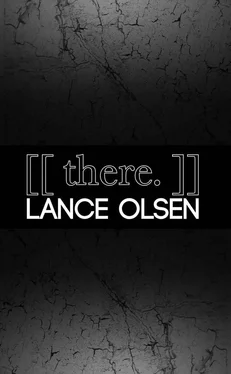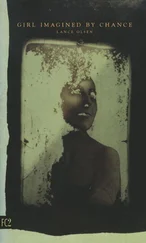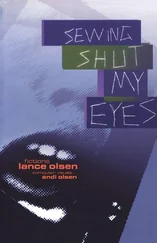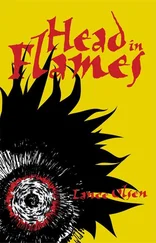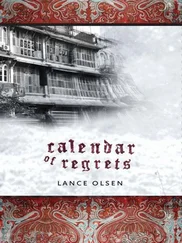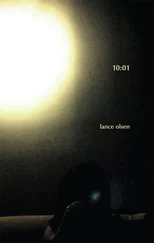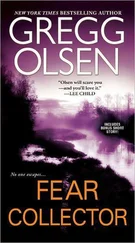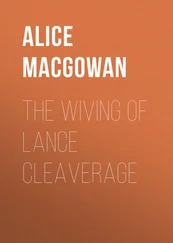I am deeply grateful to the John Simon Guggenheim Memorial Foundation and American Academy in Berlin for providing me time to work on this project; to Conjunctions , in which parts of this book first appeared in different forms; and to my graduate students at the University of Utah for helping me think about the shapes and means of being [[there.]]
For Andi, & our seconds in Berlin.
To my mind it seems clear that those who have no memory have the much greater chance to lead happy lives.
— W. G. Sebald
If you leave me, can I come too?
— Friedrich Kunath
:::: The day we pack the exactly three small UPS boxes my wife Andi and I allot ourselves for our five-month stay at the American Academy in Berlin, I happen upon this passage in Wayne Koestenbaum’s brainy meditation on the meaning of hotels:
Being-at-home, Heidegger says, is not the primordial phenomenon. Not-being-at-home is more fundamental. To be not-at-home may mean to be AT HOTEL.
:::: Then you are scudding above the Atlantic at 37,000 feet. It is afternoon. A few minutes later, it is past midnight.
A pair of celebratory scotches, dinner, and you try falling asleep, but at 600 miles per hour there is no rest, no comfortable position, and the lighting is all wrong: yellow, harsh, stubborn.
The air, too warm, oven dry, makes you conscious of your own breathing.
:::: The cabin torqueing and rattling around you in abrupt turbulence.
:::: The rough skin behind your eyelids feeling like what time passing feels like.
:::: Here is Derrida: The unrecognizable is the awakening. It is what awakens, the very experience of being awake.
:::: Here is Guy Debord: Boredom is always counter-revolutionary.
:::: London. New Year’s Eve. O. can barely stay conscious long enough to get down a pizza and salad at a damp cramped bistro just outside the South Kensington tube station, stroll through the rainy neighborhood back to his hotel, pop a pastel peach Xanax to begin rebooting.
:::: I’ve been practicing my German for three months — ever since I received the news — in an attempt to bring it back to a semblance of life after more than 30 years in the mnemonic deepfreeze.
The blond bearded graduate student with the wire-rimmed glasses who could read and speak sentences I can no longer even tangentially understand:
Who was that guy?
:::: And what does skin have to do with autobiography?
Leigh Gilmore wondered.
:::: The heavy black iron gates of the American Academy swing open. Your cab crawls through the icy drizzle past what once was the chauffeur’s Brothers Grimm cottage, where a couple of anthropology professors and their boy are now staying, the gardener’s, where an avant-garde musician sans children is now staying, up the driveway toward the austere vaguely Italianate villa whose backyard slopes down to a small marina on Lake Wannsee.
:::: A week before you leave, you decide to keep a trash diary: a constellation of sense, thought, memory, observation, fast fact scraps.
:::: E.g.: A recovery rate from jet lag of one day per time zone crossed can be expected.
:::: I’m allergic to cherries. No one is allergic to cherries. I am.
I’ve loved them forever.
Cherry pies. Cherry lollipops. Cherry Coke.
Except one day I ate half a tub of Ben & Jerry’s Cherry Garcia and started skidding into anaphylactic shock. The lump in the throat. The hives across the neck and back. The flushed face and crazy pulse.
:::: In the wake of Kim Jong-il’s death , e.g., grief was mandatory in North Korea. Some insincere mourners were sent to labor camps as punishment.
:::: David Foster Wallace, whom I bumped into at O’Hare (he was flying east; I was flying west; we had one of those affable five-minute catch-up conversations until I asked him what he was working on, at which point he mumbled something I couldn’t understand and began looking down at his sneakers a lot) the spring before he bound his wrists with duct tape, kicked over the lawn chair he was standing on, and hanged himself with a black belt nailed into a patio rafter in back of his home in Claremont, California: you have decided being scared is caused mostly by thinking.
:::: I’d just capped off a rafting trip with Andi, my niece, and nephew on Idaho’s Salmon River. We celebrated with a carb-and-sugar-rich dinner in a cowboyoidal restaurant in Riggins (population 424) and were driving home when the symptoms budded.
Initially I thought I was coming down with a cold.
By the time we reached what passed for a hospital 45 miles up the road in Grangeville, I was in shaky shape.
To calm me as she administered the epinephrine shot, the nurse (the doctor on call was home fixing his lawnmower, would be by in 15 minutes, give or take, if the situation warranted, he conveyed over the phone) told me the recent story of the young man allergic to bees who was stung on the far end of town and died on the sidewalk leading up to the emergency-room doors through which I had just entered.
:::: On the way in from Tegel Airport, our driver, Peter (mid-fifties, thinning gray moptop, contagious easy-going amiability), explains how he had followed his girlfriend to Berlin from a small town in the countryside back in the seventies.
When the Wall fell things got harder, he said, not easier. The East Germans had a different culture, found it painful and frustrating adjusting to West German work standards, couldn’t get their heads around the concept of socio-political transparency, were wired for grim inflexibility. This vexed their interactions with West Germans in everything from government planning to uncomplicated exchanges at the grocery store.
Peter suspected it would take another 20 years — another generation’s extinction — for such perspectival baggage to go away altogether.
:::: So the first line you re-learn to say is: Ich bin allergisch gegen Kirschen. I’m allergic to cherries.
My pronunciation is terrible, though, and it keeps coming out: Ich bin allergisch gegen Kirchen. I’m allergic to churches.
Which, of course, is true as well.
:::: Yet the home key Peter returned to wasn’t about the great worsening. It was about how comfortable his life had become. He drove cabs, he said, but could afford a second house in the country. He drove cabs, but could rent a boat any time he wanted and take his family onto Lake Wannsee for a sail and a picnic.
When Andi offered him a tip, he dropped the bill on the floor in surprise.
He had been expecting a handshake instead.
:::: The avant-garde. A kind of research and development arm of the culture industry, the critic Thomas Crowe called it.
Referenced David Markson.
:::: Hans Bellmer: thank you.
:::: [[Because how does one write the contemporary?]]
:::: The villa lounges in a leafy neighborhood of mansions. It’s a seven-minute walk from the brick-and-stucco train station-cum-hotel-and-café. It used to be the home of the Jewish banker Hans Arnhold, his wife, and their two daughters.
During what the Germans refer to as the Golden Twenties, the family hosted a salon for Berlin artists, musicians, and intellectuals. This was the period in and around Berlin that begat the Bauhaus’s unadorned functional cubism; Döblin’s textual montage, Berlin Alexanderplatz ; Lang’s Art-Deco-gone-darkly-crazy Metropolis ; Grosz’s exquisitely demented caricatures; Brecht and Weill’s socialist revision of John Gay’s Beggar’s Opera ; Benjamin’s hyperactive cortex.
Читать дальше
